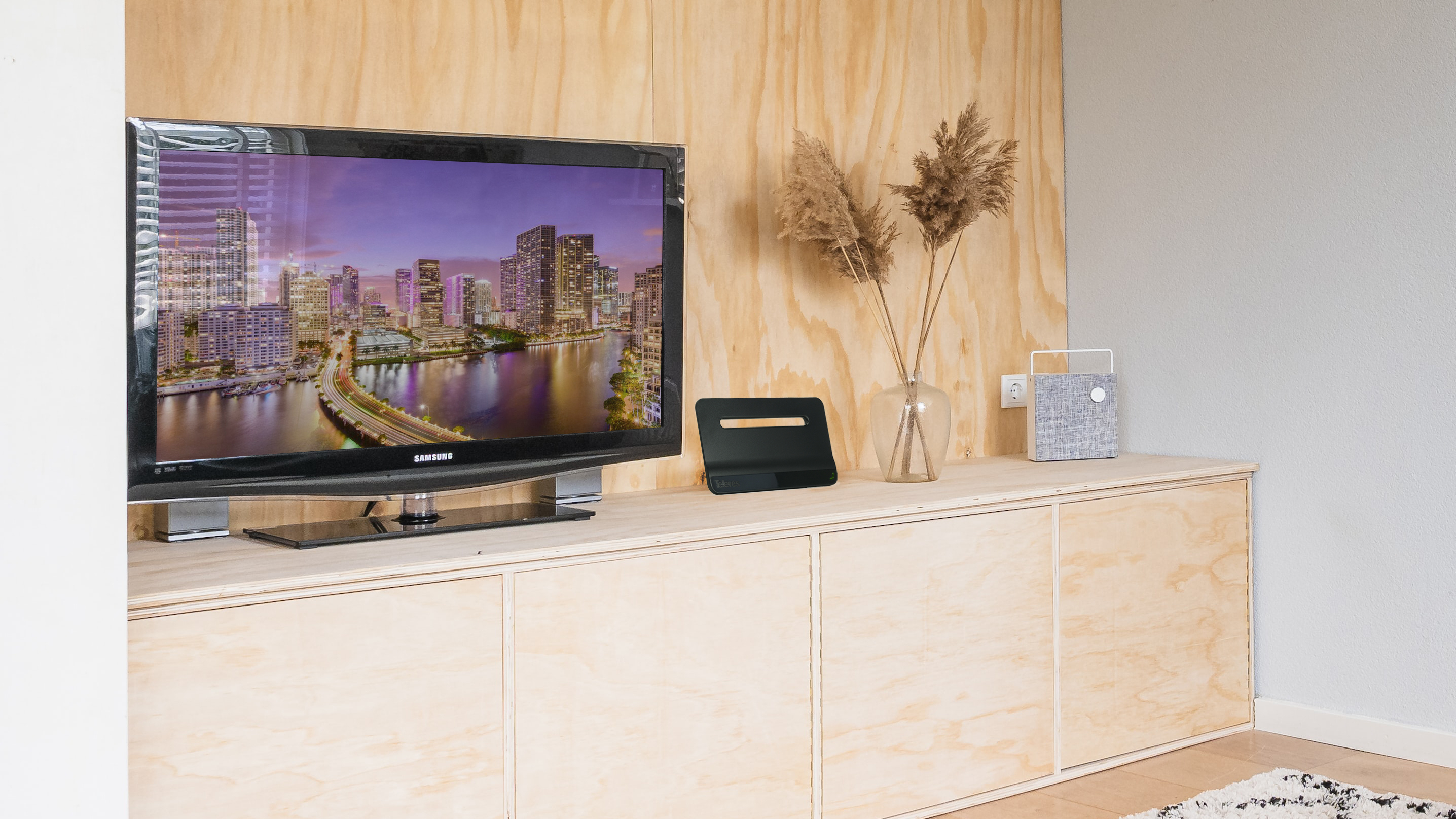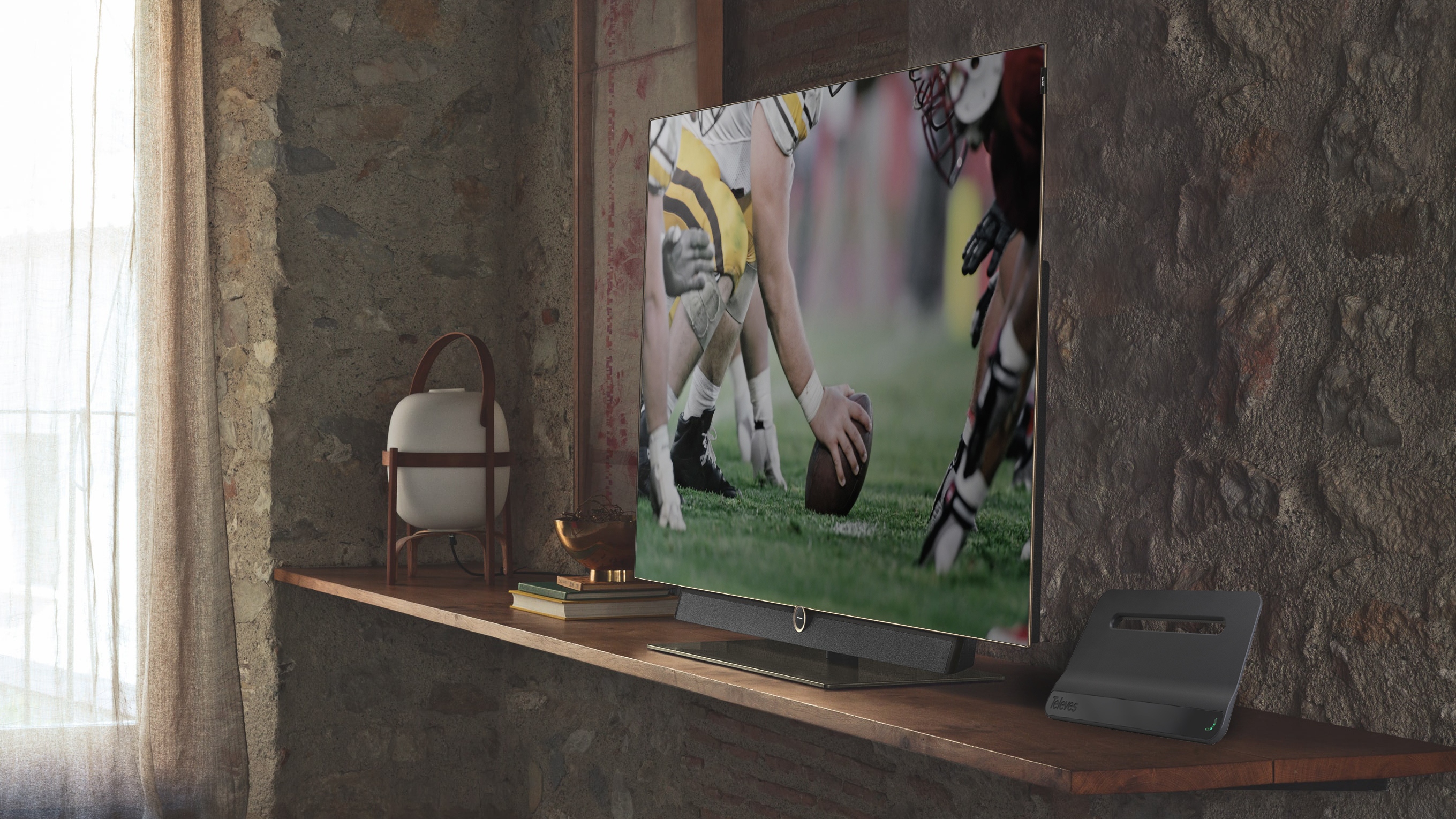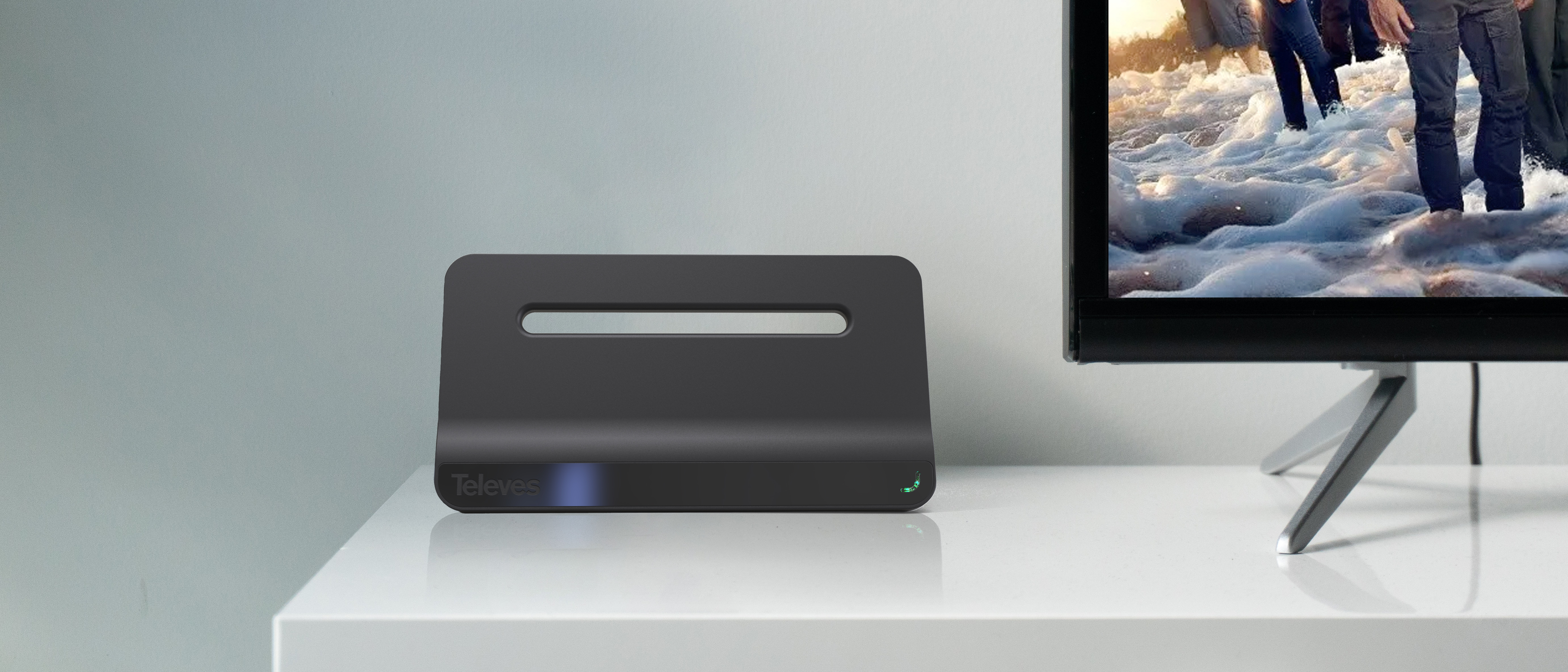Tom's Guide Verdict
Designed for tabletop, shelf, or wall mounting, the Bexia is flexible but an average performer.
Pros
- +
Attractive design
- +
Simple set up
- +
Amplified
Cons
- -
Mid-range performance
Why you can trust Tom's Guide
Range: 55 Miles
Channels Received: 33
Amplified: Yes
1080p Reception: Yes
Cable Length: 6 Feet
Size: 12.6 x 6.8 x 0.76 inches
The trouble with most indoor TV antennas is that, well, they look outdoor antennas. The $74.95 Televes Bexia breaks out of that mold with a unique design that is more at home in a living room or den. In our tests, it turned in average tuning performance but was easy to set up in a variety of configurations, which will endear it to family members who don't want to stick a large pancake-style antenna on a wall.
It's not the best TV antenna in the world, but if you're after a stylish design, the Televes Bexia delivers.
Design
The handle-shaped black plastic Televes Bexia has a unique configuration that allows you to stand it upright on a tabletop (thanks to a flip down stand), lay it flat on a window sill, or hang it on a wall.
It's also relatively compact at just 6.8-inches high, so it's an unobtrusive addition to a TV setup. The Bexia also includes an in-line amplifier with a power adapter — or you can plug it into a powered USB port on your TV.
Setup

The Bexia offers one of the most flexible placement options. We used its standing tabletop position, which seemed to work best in our standard testing location. The only drawback is that the coaxial cable is attached to the antenna. So you can't add a longer cable or more heavily shielded cable should the need arise.
The in-line amp was simple to connect. As always, we recommend checking to see what stations are potentially available in your area, as well. Conveniently, Televes includes a QR code in its documentation for connecting to Antennaweb.org, which will help you find the location of local TV towers.
Performance

As is our practice with amplified antennas, we tested the Televes Bexia with its inline power amp on and connected to a 55-inch Hisense U8N Series QLED TV, which has a built-in NextGen TV (ATSC 3.0) tuner to ensure we could pull in the latest over-the-air stations. Initial scans with the Hisense set returned a list total of 44 stations, but as with other antennas, not all the channels came in clearly.
Get instant access to breaking news, the hottest reviews, great deals and helpful tips.
We were able to watch the local CBS affiliate and NBC without trouble, but couldn't receive the weaker ABC signal or the local PBS stations. There was still plenty to watch on retro sub-channels, including the Western-oriented Grit channel and Laff comedy channel, as well as the popular Spanish language Telemundo channel.
From our original scans, ultimately 11 stations turned out to be unwatchable. That made for a final result of 33 channels that the Bexia was able to capture, a modest but not atypical result.
Verdict
If style and ease of use are high on your list of priorities, the Televes Bexia will meet your criteria. It represents a break from the tyranny of big, flat wall-mounted antennas. However, the tradeoff is a higher price tag, especially compared to the likes of the $25 Channel Master FLATenna, and it yields only average performance in terms of capturing over-the-air broadcasts.
More from Tom's Guide
- This $12 TV antenna helped me finally cut the cord
- Forget 98-inch TVs — Formovie’s new 4K projector can hit a 150-inch max screen size
- Do you actually need Dolby Vision on your next TV? Here's the answer
John R. Quain has been reviewing and testing video and audio equipment for more than 20 years. For Tom's Guide, he has reviewed televisions, HDTV antennas, electric bikes, electric cars, as well as other outdoor equipment. He is currently a contributor to The New York Times and the CBS News television program.


